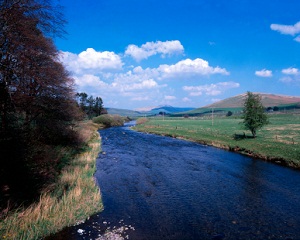Career as Hydrologist
Water is necessary for life on earth, and is used daily in households, farms and factories. Hydrologists work to better understand water, and they use their scientific findings and mathematical knowledge to carefully manage this essential resource.
Hydrologists perform research on where the earth's water can be found. This involves studying rivers, underground water, lakes and dams. In order to be useful, the water needs to be of a high quality, so hydrologists also take water samples and examine them to see if there are any dangerous chemicals or bacteria in the water. They may also need to explore ways of purifying water if it is contaminated.
Once good quality water has been found, hydrologists need to work out how to get it to the necessary places where it will be used (such as cities, farms or factories). Hydrologists often advise engineers on how to best design water systems so that the water can be transported effectively and at low cost.
The frequent droughts and water shortages in most part of India mean that hydrologists also make recommendations on how best water can be managed for the future. They also look at ways of conserving and re-using water, so that supplies do not run down. Hydrologists also work with situations where there is too much water. They look at ways of predicting and managing floods in rivers, dams and lakes.
Hydrologists need scientific and mathematical skills in order to do their work. They also need field skills to perform work out of doors, and also need to be able to use the computers which organise and understand the data that has been collected.
Hydrologists work in offices, labs and out in the field. Lab work may be required in order to analyse the water specimens that have been collected out in the field. There is also often a fair amount of field work in remote places, and travel is generally required.
Advantages of this career are the opportunity to perform outdoor work, and contributing to preserving a scarce resource. Some of the difficulties include spending a long time away from home and the amount of training that is required.
How?????
1.Educational qualifications
In order to be a hydrologist, study 10+2 or equivalent with PCM and possess a pass in the concerned examination of a recognized board. Although there is no degree/undergraduate course in India in hydrologist as a subject in its own right, yet hydrology is a well covered as a part of programmes like civil engineering, geography, environmental science and management. Thus a bachelor's degree in such a related fields to hydrology is required to start acareer as a hydrologist.
After completing this 3-4 years of course, one can go in for a Master's degree course:-
1.M.Tech(Hydrology)
2.P.G. Diploma in Hydrology
3.M.E. Hydrology and water Resourses Engineering
4.Advanced Diploma in water Resourses Engineering
5.3 years M.Sc in Hydrology etc. Following this an Honours and possibly Masters degree is completed in hydrology or a related field.
After completing this 3-4 years of course, one can go in for a Master's degree course:-
1.M.Tech(Hydrology)
2.P.G. Diploma in Hydrology
3.M.E. Hydrology and water Resourses Engineering
4.Advanced Diploma in water Resourses Engineering
5.3 years M.Sc in Hydrology etc. Following this an Honours and possibly Masters degree is completed in hydrology or a related field.
2.Personal qualities
An hydrologist should:
enjoy travelling and outdoor activities
be good at scientific thinking
work accurately
be observant
have good vision and hand-eye co-ordination
be able to work well with others
Job opportunities
Hydrologists are in fair demand, as they do very necessary work. As water scarcity is on the increase, it is likely that this may improve over time. Employers include the Department of Water Affairs, water boards, municipalities and engineering companies. Self-employment as a consultant is also an option for experienced hydrologists.
3.Career path
Required school subjects: English, Maths (Physical Science may be required by some institutions)
A newly qualified hydrologist will generally start out as a field or laboratory assistant. In this role, they will learn from senior hydrologists and acquire valuable skills. Later in their career, hydrologists may run projects and perform their own research.
Salary range
Hydrologist can expect a salary between Rs.22000 to Rs.30000 to start with. After gaining some on-job experience one can earn somewhere around Rs.45000.If one gets some research work one can even get anywhere near Rs.100000 per assignment. Salaries will vary according to experience and location.
Colleges/Institutions
1.Delhi University Click me
2.JNU, Delhi Click me
3.Loyola College, Chennai Click me
4.St.Xavier's College, Mumbai Click me
5.Madras Christian College, Chennai Click me
BEST OF LUCK!!!!!!!!!!!!!!!!!!!!!!!!!!!!!!


No comments:
Post a Comment